Trinity Community Hears from NYT Columnist about Political Polarization
As voters become more clearly divided between Republicans and Democrats, many now tend to feel politics as a sense of identity and believe that they lose a piece of themselves if their party loses, according to New York Times writer Thomas B. Edsall.
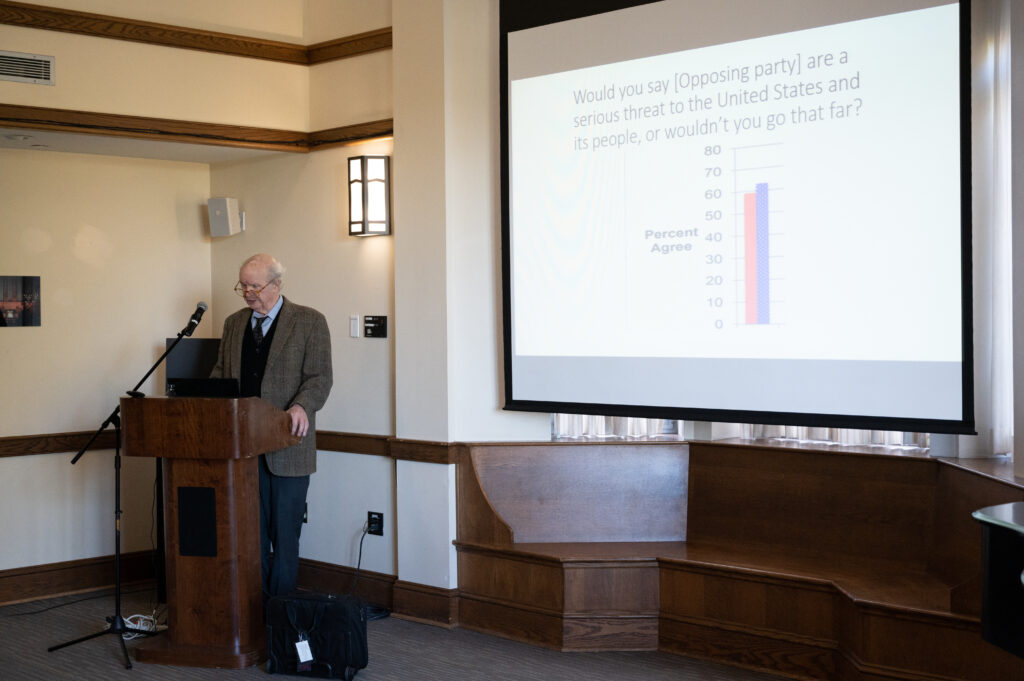
Edsall addressed the increasing polarization of American politics and the threat it poses to democracy at Trinity College on October 6, 2022, as part of his visit to receive the college’s Moses Berkman Memorial Journalism Award, in recognition of his career as a political reporter and columnist.
As a contributing op-ed writer and weekly columnist for The New York Times, Edsall covers American politics, inequality, campaign strategy, and demographics. He previously wrote about national politics at The Washington Post and is a correspondent for The New Republic.
“The country is divided into two,” Edsall said. “We’ve long had ideological polarization—where people differ over policy—but what’s happened most recently is a different kind of polarization, which political scientists call affective polarization. It’s much more personal, with support for one side but really a hatred of the other side.”
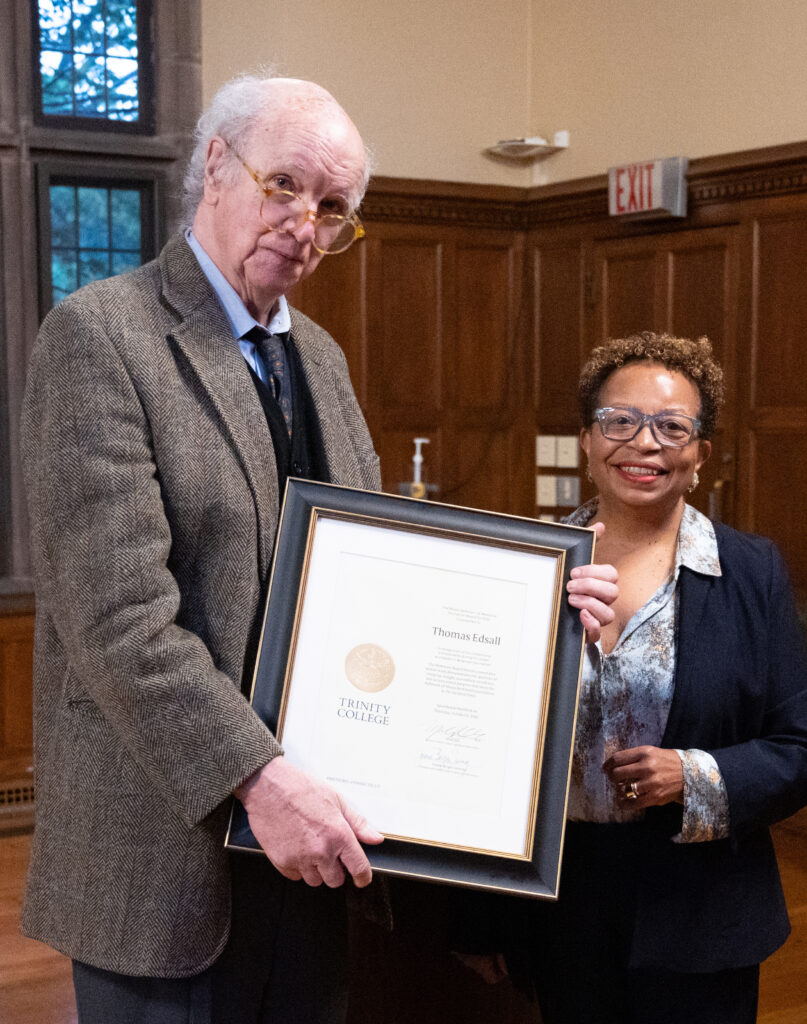
During the lecture, Edsall discussed a series of charts and graphs containing data that illustrated the country’s increasing political polarization, which he said may threaten democracy. “Elected officials and voters have become increasingly consistent with the party,” Edsall said. “Partisanship has become an expression of the self.”
This polarization has accelerated since the 2008 recession, said Edsall, which more heavily impacted traditionally Republican counties, leading to different experiences and different political outlooks based on location, race, class, education, and other factors. “Democrats win healthy states [measured by longevity and additional data] and Republicans win unhealthy states, which is a reversal of 50 years ago,” he said.
Edsall wrote in detail about these divides in his recent New York Times essay, “There Are Two Americas Now: One With a B.A. and One Without.” He also is the author of five books, has been published extensively in magazines, and contributed television and radio commentary to CNN, CSPAN, MSNBC, PBS, FOX, and NPR. For the last eight years, Edsall has taught at Columbia University’s Graduate School of Journalism, where he holds the Joseph Pulitzer II and Edith Pulitzer Moore Chair.
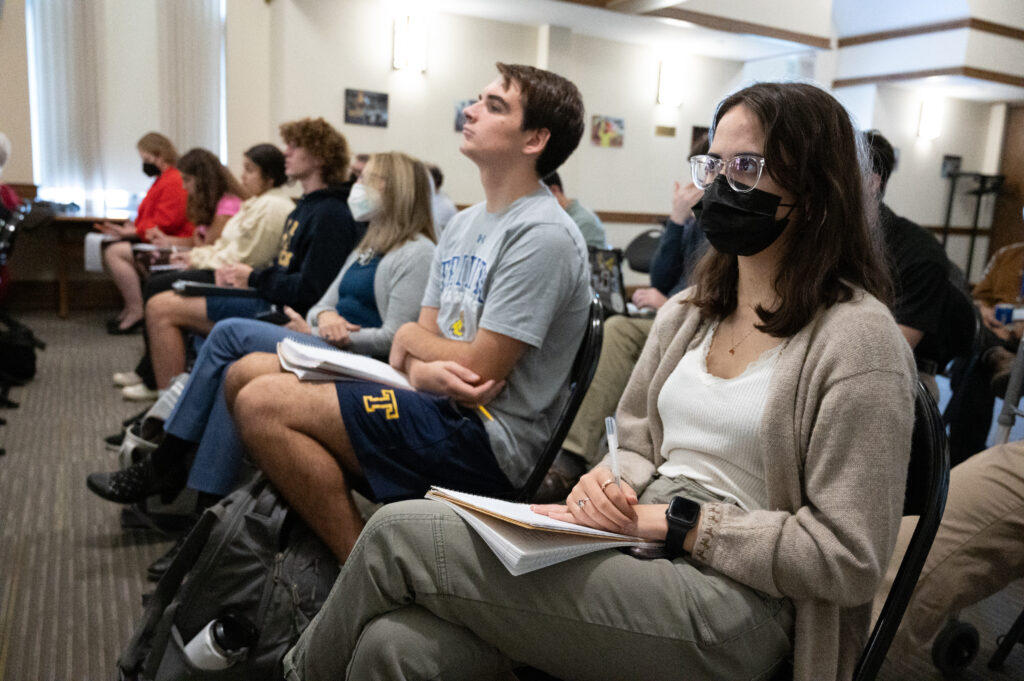
“The threat to democracy is that a large body of people who are not doing well in the system, who are experiencing downward mobility and downward socioeconomic status … become disenchanted with the political system,” Edsall said. “They have the sense that the system has stolen our opportunity as Americans to move up the ladder and see our children do better. This becomes a threat to democracy because you don’t need a majority [in order] to be disruptive to the process. The failure of government to do something to change the direction of life for that whole class of people has endangered democracy itself. I think both parties are responsible for that.”
Still, Edsall said he believes there are ways to counter this growing polarization and mitigate the threat to democracy. “Put as much focus as possible on policies that benefit all people, that do not divide one group from another,” he said.
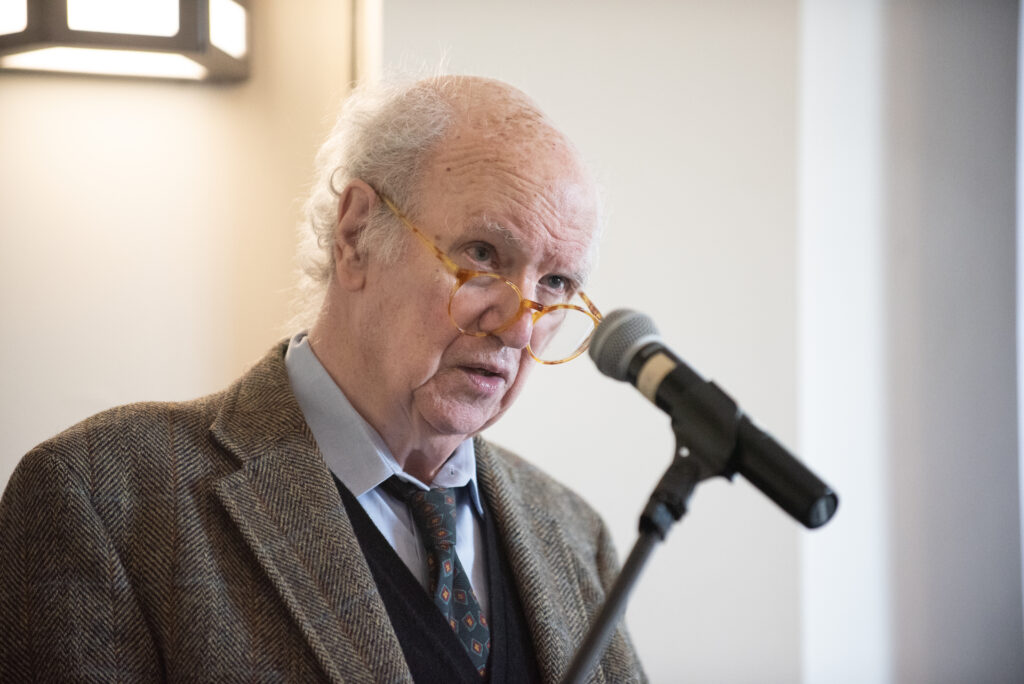
Visiting Assistant Professor of Political Science Mary J. Dudas watched Edsall’s presentation along with several students from her “American National Government” course, which discusses the founding and institutions of the U.S. government, as well as the relevance of race, class, religion, and gender in politics. “I thought that this was a great lecture for my students. We’ve talked about ideological versus affective polarization in class,” Dudas said.
Maya Esty ’25, a public policy and law major who attended the lecture, said that she appreciated how Edsall used graphs and figures to display each point he made. “Since I’ve been politically aware, politics has always been so polarized in my lifetime. It’s interesting that he showed what it was like before that,” Esty said. “I liked how he talked about the importance of creating policy that benefits everyone; I hope to be able to do that someday.”
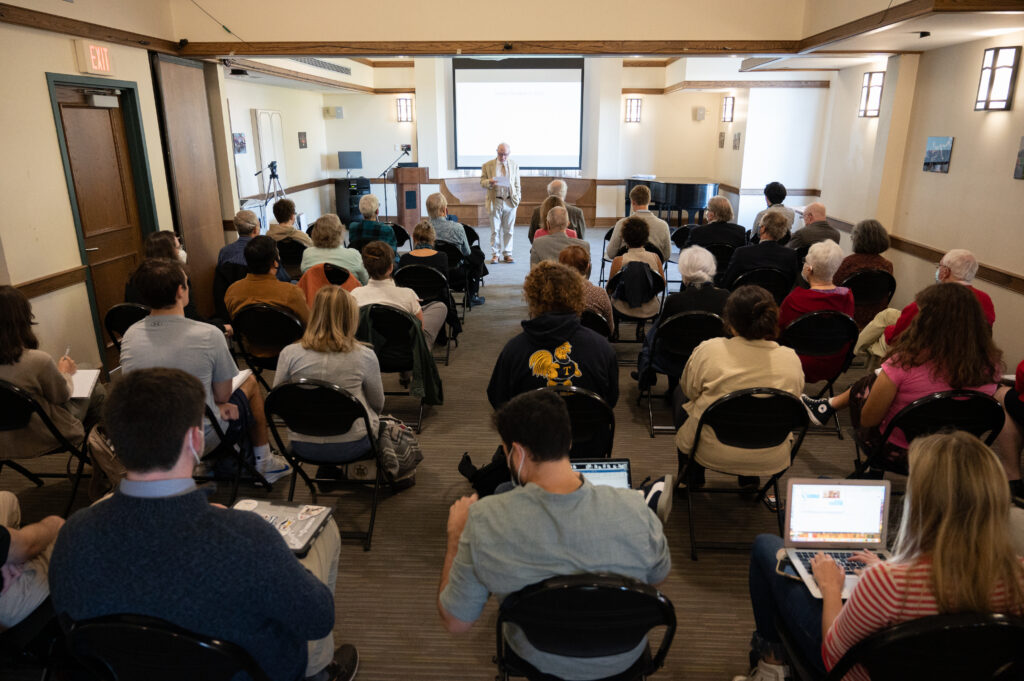
Professor of Religion in Public Life Mark Silk, director of the Leonard E. Greenberg Center for the Study of Religion in Public Life at Trinity, introduced Edsall’s lecture in Mather Hall’s Terrace Rooms. “Thomas Edsall is a journalist very much in Moses Berkman’s mold,” Silk said. “He has had a career in political journalism that now is approaching 60 years.”
The Moses Berkman Memorial Journalism Award honors the careers of outstanding journalists. It is supported by The Moses and Florence Berkman Endowed Fund at Trinity College, in honor of the late Moses Berkman, Class of 1920. Moses Berkman was a journalist who served the Hartford Times as a political correspondent, columnist, and editorial writer from the early 1920s until his death in 1956. Recent award recipients include tech writer Kara Swisher, CNN legal analyst and Supreme Court biographer Joan Biskupic, and E. J. Dionne of The Washington Post and Brookings Institution.
